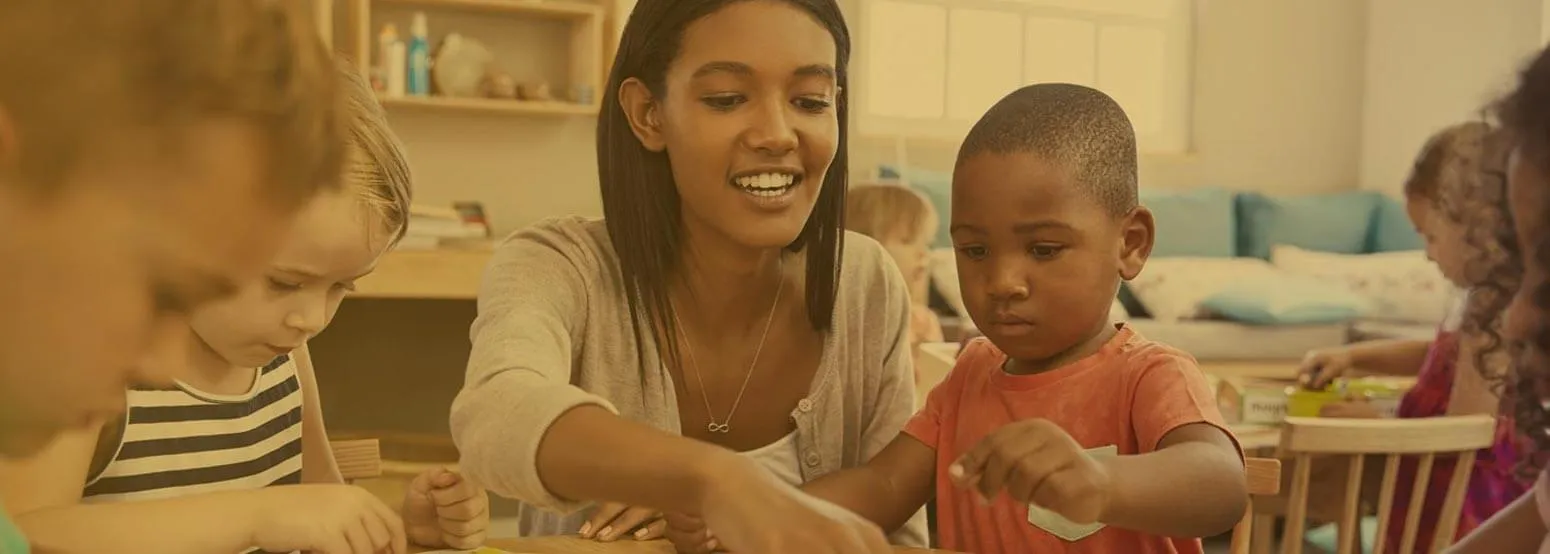Conversations Lead to Jobs: 100 Good Conversation Starters
Here are some conversation starters to break the ice in any professional situation and help establish a connection between you and others.
Our customers have been hired by*:*Foot Note

Conversation Starters
Need help with how to start a conversation? Conversation starters can lead to exciting conversations for job candidates to network and build meaningful rapport with job interviewers. Conversations can occur just about anywhere but they’re particularly important during a networking event or before a job interview officially begins.
On this page, we’ll provide you with 100 of the best conversation starters for job networking, social settings and job interviews. These conversation openers can instantly lead you to deeper and more genuine conversations, paving the way for a great job interview and improving your chances of getting hired.
Build my resumeWhy conversation starters are important
Conversation starters can vary greatly depending on the situation, but they all serve as ice-breakers that can lead you to meaningful and deep conversations. Some conversation starters are suitable for a specific situation but entirely unsuitable for others.
For example, you may find yourself on a first date on Valentine’s Day, struggling to make some good vibes by engaging in some small talk. In this case, casual or funny conversation starters like talking about your favorite restaurant, favorite food or even sharing your worst pick-up line would be very suitable. Even asking your date silly “would-you-rather” questions or about their biggest regrets while in high school would all be suitable conversation starters for your first time on a date. But using these types of personal questions during a job interview can probably guarantee that this is the last time you’ll see that hiring.
Below we’ll go over good conversation starters to use with a job interviewer and great conversation starters for job networking. Finally, we’ll provide some practical guidelines for how to keep the conversation going once you’ve asked the specific questions and started the small talk.
40 Great conversation starters in a social setting
Once you’ve successfully used these conversation starters to engage in small talk at networking events, you can then maintain the conversation by asking more casual questions to build further rapport, such as the following, broken down by topic:
Conversation starters about goals:
Most people have things they hope to accomplish, both inside and outside of work. Talking about goals can be an excellent way to bond with other people and announcing these ambitions can keep people motivated to improve or progress in their own goals. Here are a couple questions you can ask, along with share a bit about your own self-improvement plans so that you can plan or celebrate together:
- What are the top three things on your bucket list?
This may seem like a strange question, but deep conversation starters like this one, may yield some common ground between you and the other person.
- What’s the best advice you’ve ever been given?
This is a great way to listen intently to the mentioned advice, thank the person for sharing, and respond with how you’ll remember that piece of advice in the future.
- What would you say is your hidden talent?
- Who do you look up to most?
- What is one thing you’d like to improve at work?
This is a great opportunity to mention your best work qualities should the other person mention something that happens to be your strong areas in business.
Light personal questions as conversation starters:
Sometimes talks that are too politically charged, too personal or revolve in gossip can get heated, and it is often best to steer away from overly controversial topics until you have a relationship with someone and know how they will react. Instead, discuss subjects that can lead to follow-up questions without making anyone uncomfortable, such as:
- What’s the best purchase you’ve ever made?
- Do you have any pets?
- Do you have a work-related pet peeve?
A great way to avoid saying something in response that will not be favorable to the other person.
- Do you know a lot of people at this event?
The answer to this question allows you to mention if you’re a newcomer and would like to be introduced to others for networking purposes.
- Have you tried the food? Any recommendations?
- Who do you look up to most?
- How has your day been so far?
This is a courteous and simple way to elicit an answer from the other person. It gives you the opportunity to respond with encouraging words if a day has not been the best.
- Did you have a childhood dream job?
- What are your plans for retirement?
- Can you survive without checking your cell phone for at least one hour?
This can elicit a simple “yes” or “no” answer but it’ll probably trigger a further explanation for anyone unable to disconnect from a cell phone.
- What are three words that best describe your work demeanor?
The answer to this question provides a quick glimpse into the work environment. If the person answers with the words stressed, overworked and overwhelmed, it may not be a good place to work.
- If you had enough money not to work, what would you do for fun?
- Do you commute to work or work remotely?
It’s a good idea to see if a company requires employees to work in-house, hybrid or allows complete remote working opportunities.
- What is the best gift you ever received?
Conversation starters about vacations and holidays:
People love traveling or taking time off to unwind. Trips are an exciting and engaging conversation topics as it brings a sense of bonding and joy to the conversation. You can ask about past travels or plans for upcoming trips as this offers a chance to bond over common destinations, or just to focus on thoughts of rest and relaxation.
- Where’d you go on your last vacation?
This is just a fun question that can lead to a common ground such as vacationing at the beach or in the mountains, camping locally or sightseeing abroad.
- What is one thing you can’t live without?
- Living in the mountains or living by the sea – which would you choose?
- What’s your favorite holiday?
- Does the company celebrate holidays or seasonal events?
If you’re interested in a company that includes fun events like summer or holiday employee gatherings, you’ll get the answer from someone who knows.
- Do you travel on business?
If you’re looking for insight in the business travel requirements, an answer to this question may yield an honest perspective on potential travel.
- What was the best place you’ve traveled on business?
- What was the longest business trip you’ve ever taken?
The answer can help you determine whether business travel with the particular company may be more than you’re looking for or anticipating.
- Would you relocate for a great business opportunity?
This gives you insight into whether the person that you’re conversing with relocated to work at the present company, making the company more worthwhile to join.
Conversation starters about hobbies:
Hobbies are one of the most popular talking points. Learning what people like to do in their spare time can help you understand and appreciate them as individuals and can provide opportunities for future conversations. Here are some suggestions:
- What’s your favorite movie of all time?
- What about your favorite book?
- What’s your favorite song?
- What’s your favorite thing to do in your free time?
- Are you a morning person or night person?
- Who is your favorite author?
- What TV show are you into right now?
- Do you have a favorite sport?
- Do you have a favorite podcast?
- What’s your favorite type of music?
- Do you have a favorite local restaurant?
- Do you like playing party games?
20 good conversation starters during a job interview
Pre-interview small talk can be crucial for ensuring a smooth and successful interaction during an interview. Preparing some good conversation starters can help avoid awkward silences and uncomfortable beginnings in an interview. In addition, they allow you to start interviews with an instinctive and personal touch making you more likable and provide perfect opportunities for follow-up questions regarding the job.
Here are some perfect conversation starters to use with an interviewer:
Top 40 conversation starters for job networking
Having the skills to start and maintain an interesting conversation is an excellent communication skill for job networking events. Choosing the proper conversation starters for networking events can help you develop meaningful rapport with other professionals in your industry, make new connections and build long-lasting relationships.
Networking events provide an excellent opportunity to build potential partnerships with professionals in your industry. But you can’t make these potential partnerships if you don’t leave a great first impression, and for that, you must know how to start and maintain great conversations. Therefore, to fully take advantage of networking events, use these five great conversation starters to mingle with like-minded professionals and develop meaningful relationships and potential partnerships:
5 tips for keeping the conversation going
Once you’ve successfully gotten the conversation started, it’s equally important to keep the conversation going in the right direction. You can do this by being an active listener. To be an effective active listener, show the interviewer that you’re listening by having open body language, and by making and maintaining eye contact. Show that you have summarized what the speaker has said when you ask relevant follow-up questions to show them that you are invested in the conversation and want to continue it.
Here are five ways to keep the conversation going:
- Practice your nonverbal communication: This means that you show interest on your face, you’re not crossing your arms, your tone of voice is positive, and you feel comfortable in your surroundings.
- Use active listening: Active listening involves paying close attention to what someone is saying to you, rephrasing what the person is saying and asking clarifying questions to understand what they are saying. Remember to focus on the speaker and avoid distractions by paying close attention to who you’re communicating with, engaging with them and asking questions.
- Steer the conversation to topics you’re both interested in: Ask questions that begin with who, what, why, when, where, and how is an easy way to narrow down broader topics to the parts that interest you or to sublet change the subject without being forceful.
- Ask open-ended questions: These are questions that are phrased as a statement which would then require a longer response then something static like a “yes” or a “no.” AN open ended question can also lead to follow ups which will help keep the conversation flowing.
- Have conversations with people you’re comfortable with: Use friends and family to test out new conversation starters and practice elaborating on new topics with them.
More job search and networking resources
ResumeHelp provides conversation starters to break the ice in any professional situation and to help establish a connection between you and others. It also has plenty of other resources and guides for networking and making connections.
Check out these resources if you need help with:
- Career Advice and Planning: The following articles will help you get through the process of preparing for your career search so that every aspect of your job application is complete, accurate and that you’re ready for success.
- Interview Tips: When a job interviewer asks questions about your resume, how should you answer them? Just follow ResumeHelp’s professional tips and guide to find out how.
- Interview Questions: Behavioral interview questions are questions recruiters ask candidates in order to get an idea of their soft skills, personality and communication skills. Figure out the best way to answer these questions just in time for your next interview.
- How to Use the STAR Method in Answering Questions: Here’s how you can ace your interview using the STAR method.
- Job Search Guide and Tips: There are many sites you can use to search for jobs, so where do you start? Here’s ResumeHelp’s tips on the top sites you can use for an effective job search.
FAQ: Conversation Starters
Have questions? We’re here to help.
What are some cute conversation starters?
While experts may not suggest you use a “cute” conversation starter in a job interview or at a networking event, it can be used in social settings to break the ice. Here are some cute conversation starters:
- If you could have a superpower what would it be?
- What’s your favorite comfort food?
- What is your favorite season?
- What was your favorite subject in school?
- What’s your favorite song and dance move?
- What was your most embarrassing moment?
- Which do you like the most: dogs or cats?
Answers to these cute conversation starters could help instigate an engaging conversation.
How do I move past small talk?
Using any conversation on this page can help you get off to a great start. To move past the small talk, segue the topic into questions the other person may be interested in. Then, through that switch in the conversation, you can subtly get to the point of the topic you’re looking to discuss whether it’s more information about a company or job, networking opportunities or job interview questions.
Why is small talk important?
Small talk is important because it helps pave the way for authentic and deeper conversations down the line. It also increases your ability to bond with others and enables you to find common ground and shared interests with those around you.
What are the worst conversation starters?
Regardless of the situation, topics relating to politics, money, social media, personal family questions, death, religion, sex,gossip, or any controversial opinion tend to be awkward conversation starters. Start a conversation the right way with the questions on this page, and you’ll build your conversation skills and make meaningful relationships.
Couldn't find the answer you're looking for?





